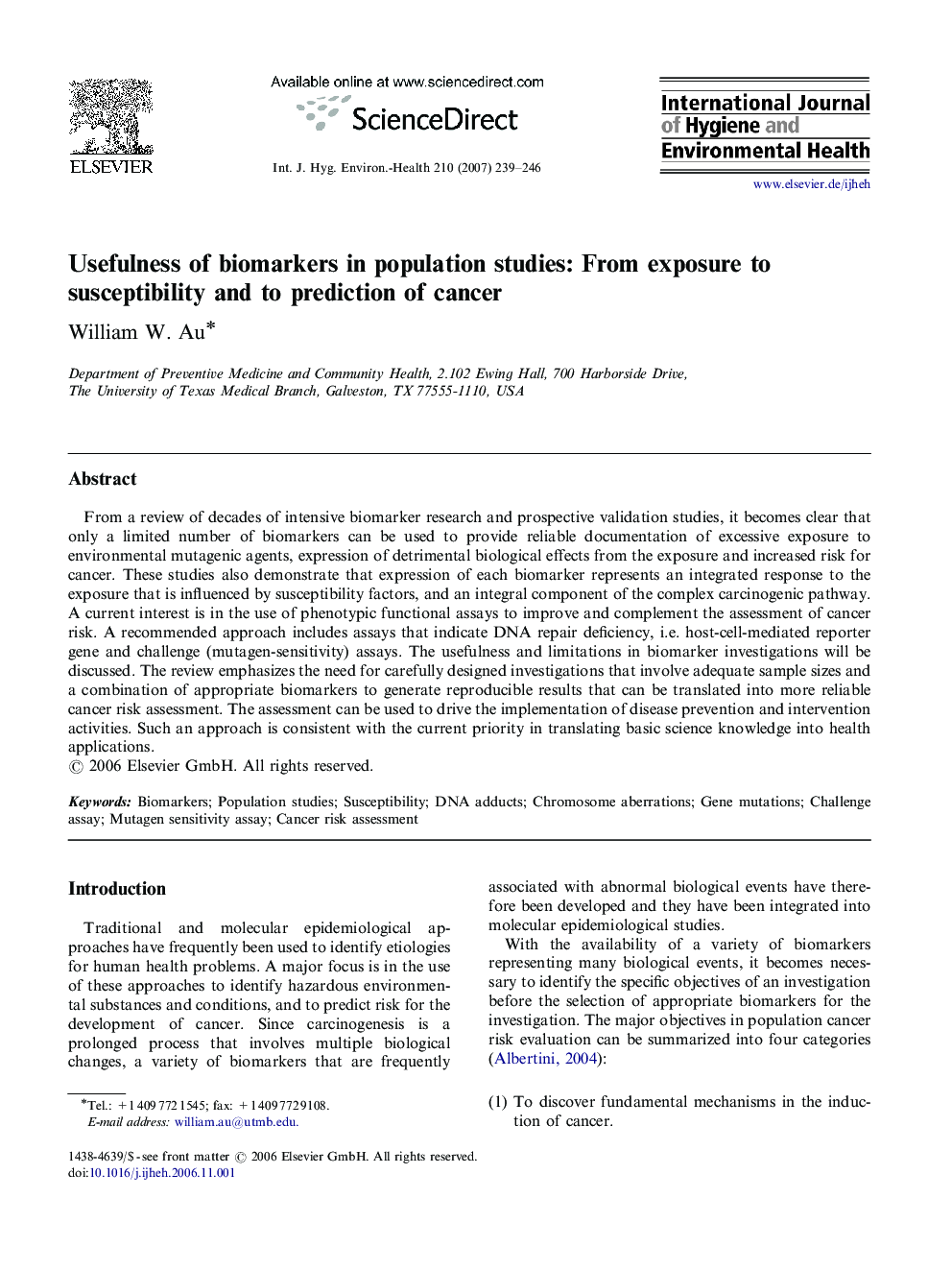| Article ID | Journal | Published Year | Pages | File Type |
|---|---|---|---|---|
| 2588992 | International Journal of Hygiene and Environmental Health | 2007 | 8 Pages |
From a review of decades of intensive biomarker research and prospective validation studies, it becomes clear that only a limited number of biomarkers can be used to provide reliable documentation of excessive exposure to environmental mutagenic agents, expression of detrimental biological effects from the exposure and increased risk for cancer. These studies also demonstrate that expression of each biomarker represents an integrated response to the exposure that is influenced by susceptibility factors, and an integral component of the complex carcinogenic pathway. A current interest is in the use of phenotypic functional assays to improve and complement the assessment of cancer risk. A recommended approach includes assays that indicate DNA repair deficiency, i.e. host-cell-mediated reporter gene and challenge (mutagen-sensitivity) assays. The usefulness and limitations in biomarker investigations will be discussed. The review emphasizes the need for carefully designed investigations that involve adequate sample sizes and a combination of appropriate biomarkers to generate reproducible results that can be translated into more reliable cancer risk assessment. The assessment can be used to drive the implementation of disease prevention and intervention activities. Such an approach is consistent with the current priority in translating basic science knowledge into health applications.
